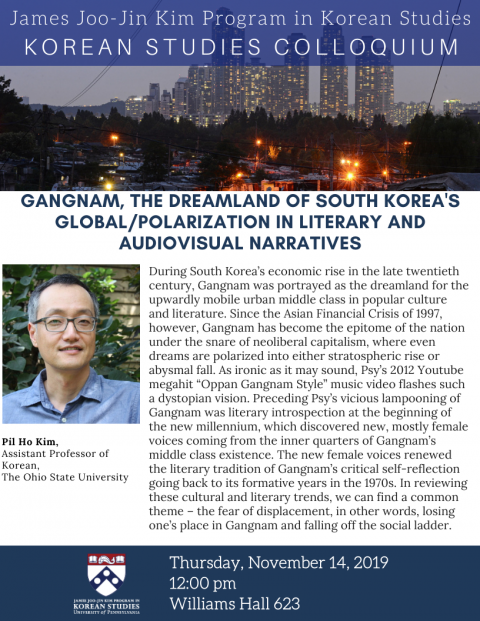
Korean Studies Colloquium
Williams Hall 623
During South Korea’s economic rise in the late twentieth century, Gangnam was portrayed as the dreamland for the upwardly mobile urban middle class in popular culture and literature. Since the Asian Financial Crisis of 1997, however, Gangnam has become the epitome of the nation under the snare of neoliberal capitalism, where even dreams are polarized into either stratospheric rise or abysmal fall. As ironic as it may sound, Psy’s 2012 Youtube megahit “Oppan Gangnam Style” music video flashes such a dystopian vision. Preceding Psy’s vicious lampooning of Gangnam was literary introspection at the beginning of the new millennium, which discovered new, mostly female voices coming from the inner quarters of Gangnam’s middle class existence. The new female voices renewed the literary tradition of Gangnam’s critical self-reflection going back to its formative years in the 1970s. In reviewing these cultural and literary trends, we can find a common theme – the fear of displacement, in other words, losing one’s place in Gangnam and falling off the social ladder.
 James Joo-Jin Kim Center for Korean Studies
James Joo-Jin Kim Center for Korean Studies